Wanted: Couple to run deserted French island of Quéménès
- Published
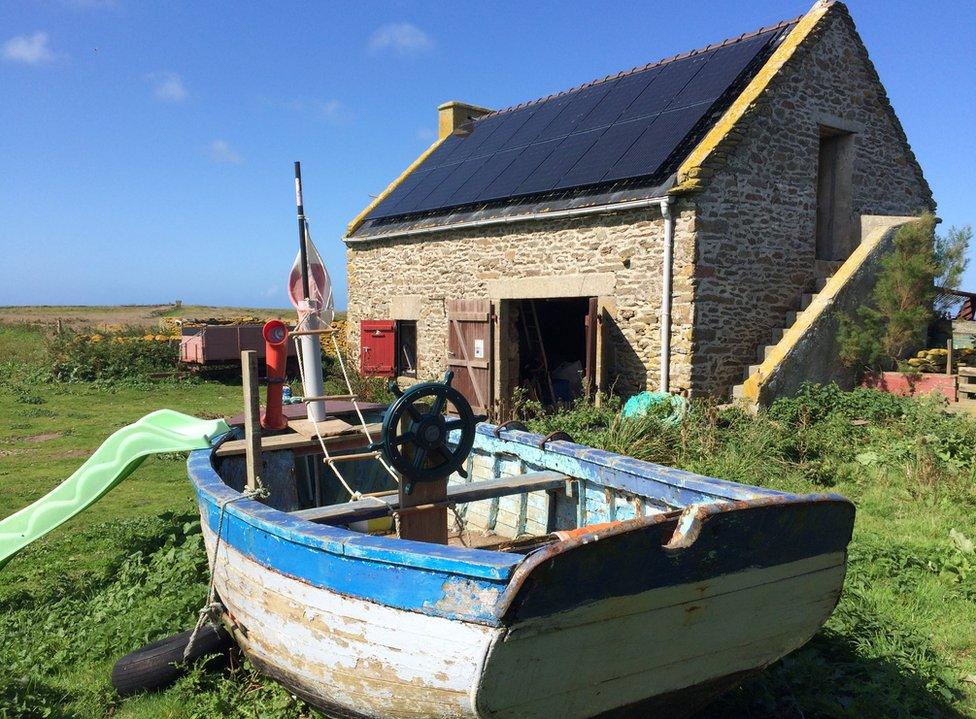
The successful couple will inherit a house that is totally self-sufficient
It could be your chance to live on a deserted island.
The French government is looking for a new couple to take over the tiny Brittany island of Quéménès. The current occupants, who were chosen 10 years ago, have decided to leave.
Wanted: Person(s) to run Brittany island. Must be practical-minded and resilient. Farmhouse provided. Solitude guaranteed.
From 2017: David and Soizic Cuisnier talk about their time on the island
Exactly a decade on, France's Coastal Protection Agency (Conservatoire du Littoral) has advertised for new volunteers to take over a unique experiment.
Quéménès is a mile-long speck of sand, rock and grass in the Molène archipelago, just off the far-west Breton coast. It is home to seals, sea-birds, rabbits, and a flock of black Ushant sheep.
And someone has to live there.
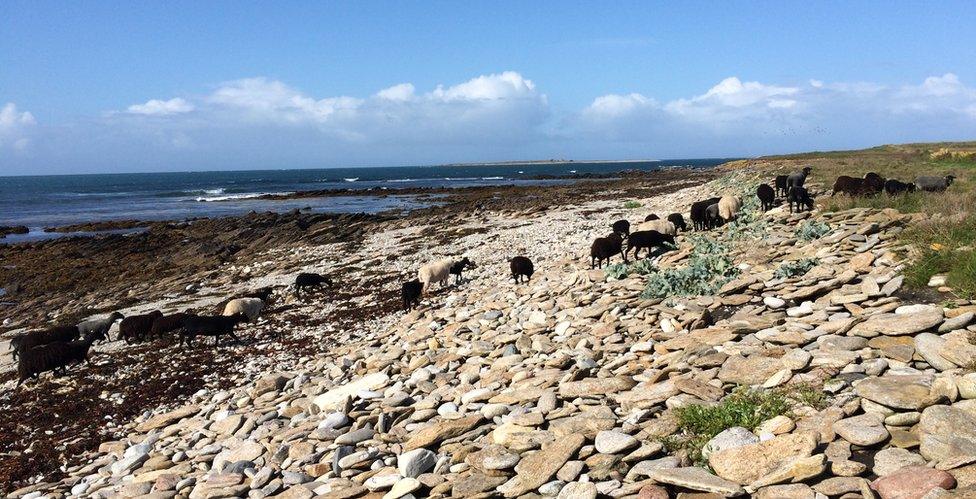
Quéménès is a tiny island that is home to a flock of Ushant sheep
The background is this. After thousands of years of human occupation, the last owners of Quéménès quit the island farm 25 years ago.
Exercising their prerogative, the Conservatoire stepped in to buy.
At that point they could simply have created a nature reserve, but they decided otherwise. The farm would be kept as a going concern, and they would advertise for a couple to run it.
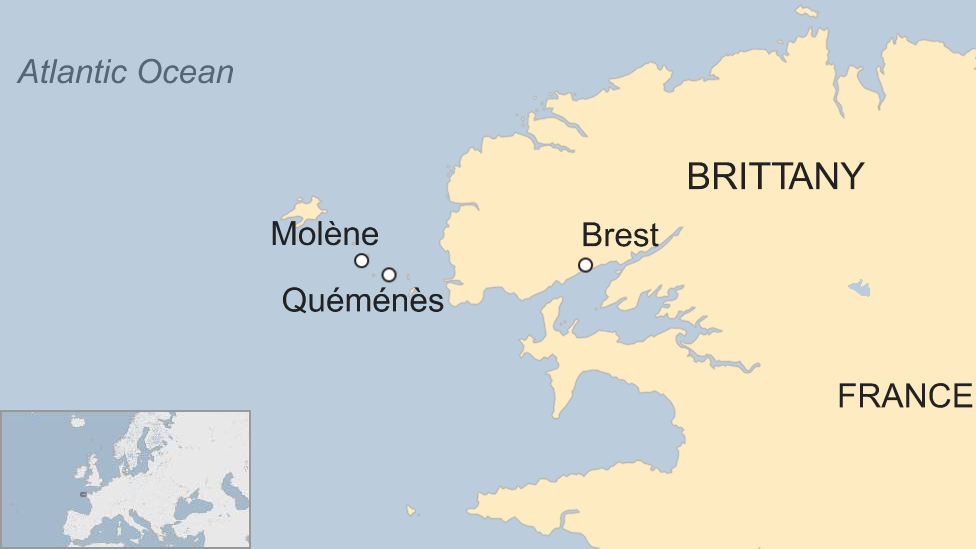
And so it was that in 2007 David and Soizic Cuisnier were given possibly the most romantic job in the world: to live on a deserted island, and to keep the island alive.
Ten years on, and the Cuisniers, now supplemented by children Chloé and Jules, are preparing to leave.
They have fallen out with the Conservatoire over the issue of rent. In any case, they feel the children need to be living near school.
There are 20 "serious" candidates to replace them and the deadline for applications has just closed. The lucky successors will be appointed in the coming weeks and they should arrive in the new year.
If the experience of David and Soizic is anything to go by, they are in for the time of their lives.
"If we'd listened to people's advice 10 years ago, we'd never have done it," says David.
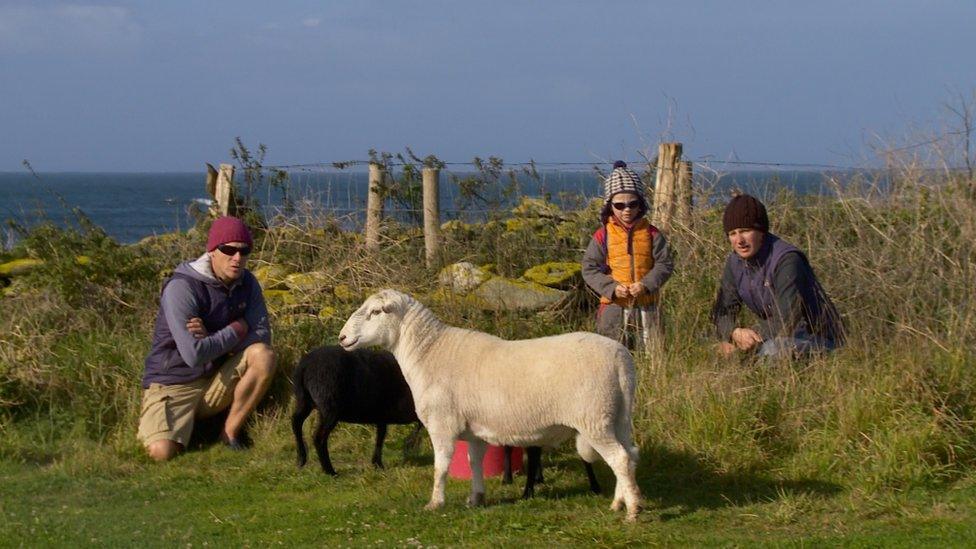
In the decade spent on the island David and Soizic Cuisnier have had two children
"Coming here was an act of glorious folly. But it turned into the most wonderful adventure. We developed the farm into a successful business. We raised a family. It has been unforgettable."
The main condition of the Cuisniers' lease was that they would have to earn their livelihood.
So over the years they have diversified into different areas. They grow Mona Lisa potatoes, which they market over the internet and post to purchasers from the neighbouring (inhabited) island of Molène.
They run a guesthouse for six months of the year; they manage the sheep; and they gather edible seaweed. This last they see as a major opportunity, and after leaving Quéménès they hope to become pioneers in the emerging business of seaweed cultivation.
Back to nature
The other challenge has been to use only those resources provided by the island.
So their electricity comes from a wind turbine and solar panels, and their water is drawn from the island well, itself fed by rainwater. Toilets are of the dry variety: scoop-and-sawdust rather then flushing.
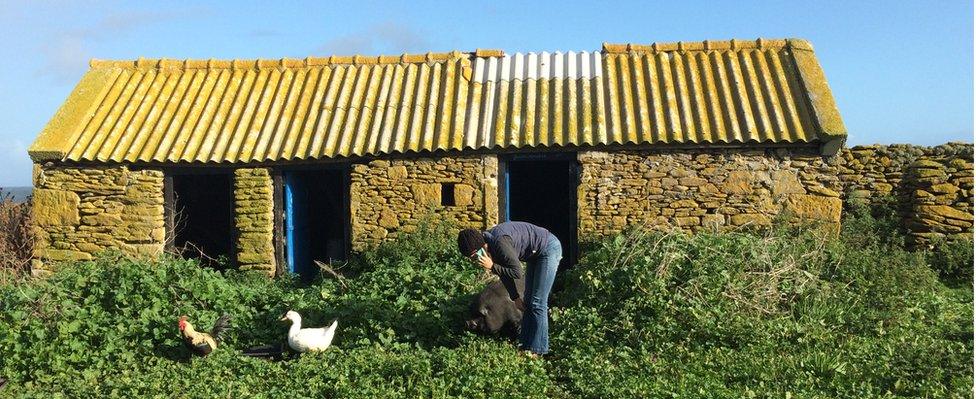
Life on the island is not completely solitary: there is access to mobile phones and internet
"We have shown that it is possible to have a normal, modern life, while consuming only what nature has given. We have all the electronic gadgets we need, including an electric buggy to get round the island," says David Cuisnier.
The one hiccup is that under typically recondite French regulations, the island water is classed only as "buvable" and not as "potable". Both words mean drinkable, but unless water gains the higher health status of potable, it cannot be used in any process of food transformation.
This meant their idea of setting up a small factory to convert seaweed into pickles and other comestibles never took off.
Ten years of island adventures
An evening with the Cuisniers is an evening of stories about the island, about its history and about their own adventures there. Chloé, aged seven, and five-year-old Jules have had surely the most idyllic of childhoods.
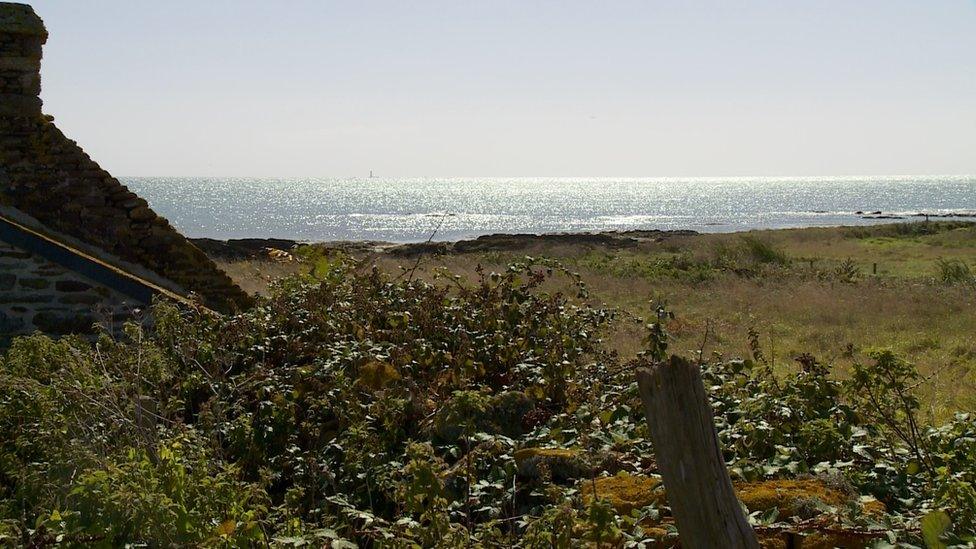
There was the time they found four skeletons on the beach.
The sea had eroded their place of burial. At first, experts thought the bones were of soldiers killed in a fracas with the English.
The Royal Navy knew these waters well, from its frequent incursions against the French Atlantic fleet and its base in Brest. The nearby island of Ouessant is known in English charts as Ushant.
"But in the end they decided they were probably shipwrecked sailors, washed up," says David.
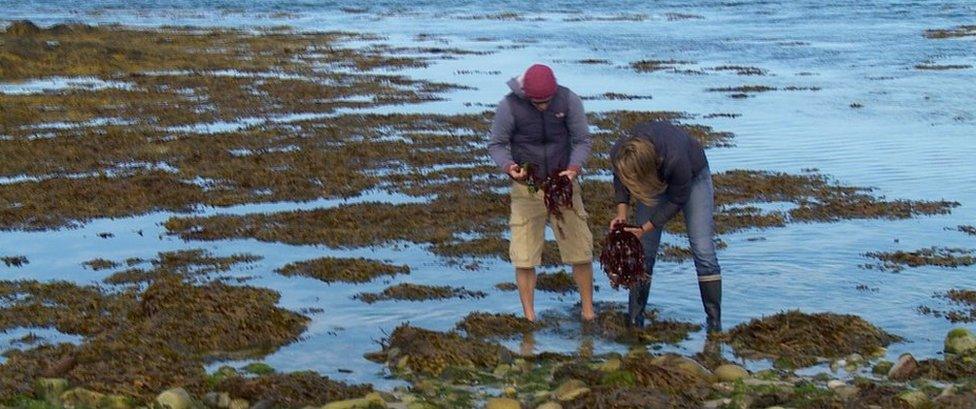
Island life: The Cuisniers have become experts in cultivating seaweed
There are in fact scores of wrecks in the sea off the archipelago, notably that of the Drummond Castle, a British passenger ship sailing from South Africa which went down with 350 lives in 1896.
Then there was the tale of the Irish balloon. One evening, walking with the children, Soizic Cuisnier found a large balloon in a thicket. It had a message attached, from a couple in Dublin who had just lost a baby boy to a fatal genetic illness.
Sending the balloon into the air was part of their process of grieving. He wrote to the couple, and they are still in contact today.
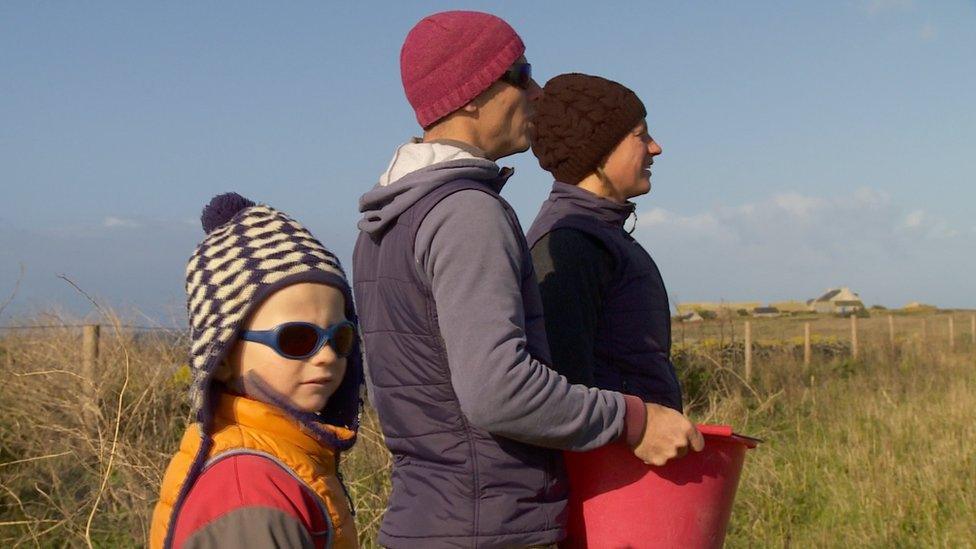
There were the storms of 2014, which lasted for weeks. One evening, struggling back from a walk in force-10 winds, David saw what looked like a low, billowing cloud moving towards him.
"It seemed out of place in the storm, because it was coming so slowly across the sea. Only when it hit did I realise what it was. It was a 'salt fog' - salt whipped up from the sea by the ferocity of the blast," he says.
But what of the hardships? The solitude?
"Obviously we had our crises," he says. "One year the potato crop was totally eaten by rabbits. Luckily myxamatosis arrived, and the rabbit population fell from around 2,000 to the 100 or so we have today."
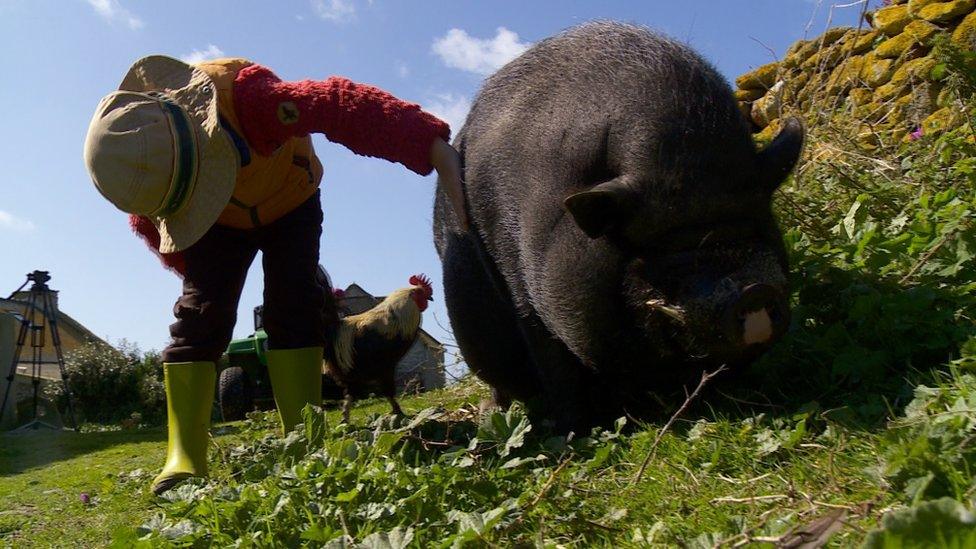
"And there was the time Soizic cut the end of her finger off. But the amazing thing then was how quickly the helicopter ambulance came. In 20 minutes she was being seen to by a doctor, which is quicker than she would have had on the mainland!"
And that is the final message from the Cuisniers. Please don't call them France's answer to Robinson Crusoe. Cut off they are not.
"The fact is we live in modern times. From the farm we can see the mainland and the other inhabited islands. We have the internet, we have constant visitors. Never once have we felt alone!"